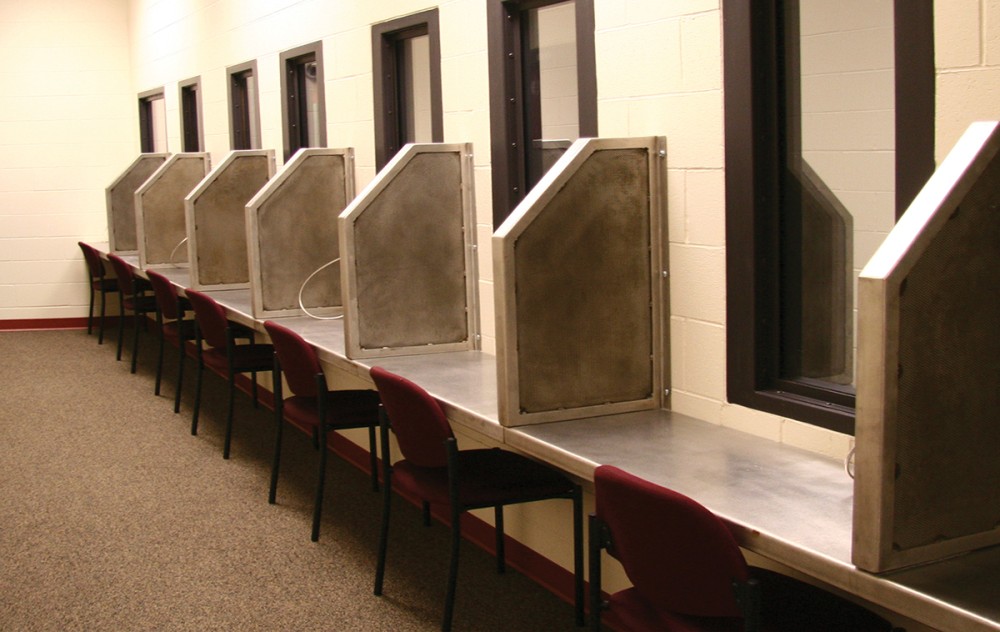
Despite numerous notices prohibiting it, I entered the building with my cell phone. The officer at security immediately understood this meant I had no idea what I was doing. “First time with us,” he observed. He advised me to take the phone to my car, and to be quick. Visiting hours would soon end for the day.
On my second try, I made it through security to the registration counter. The official behind the counter looked at my driver’s license and asked me who I had come to visit. After a few deft clicks on her keyboard, she shook her head. The person I wanted to see could not be located. “It happens,” she said, still staring at the computer screen. She called the shift supervisor.
The shift supervisor introduced herself as Deputy Kiosha. She was completely formal, all law. Her pale brown uniform was without blemish or wrinkle. Her duty gear was polished to a military shine. She did not rush as she spoke, nor did she avert her eyes to the right or to the left. This was her house, and I was in it.





